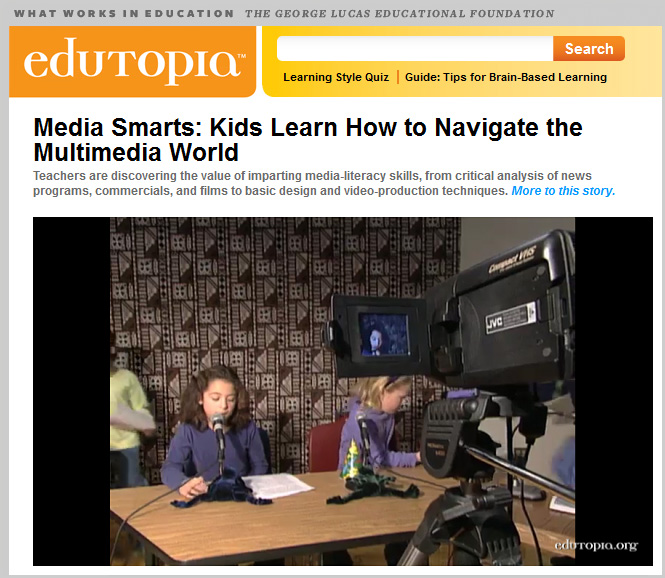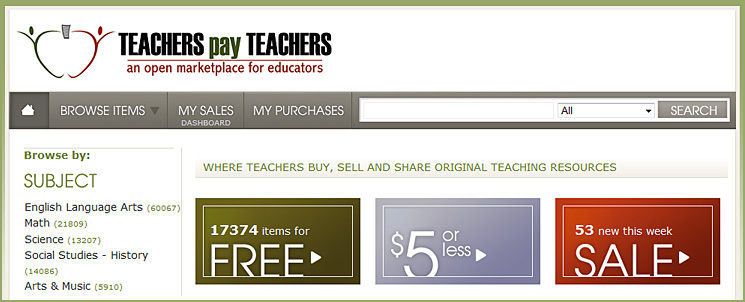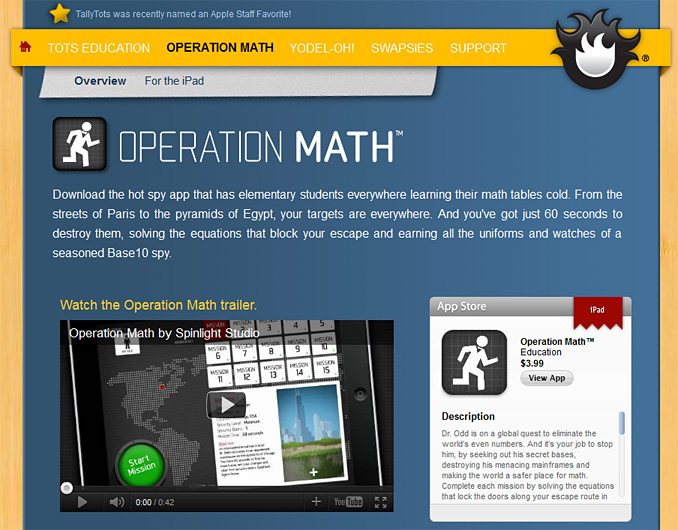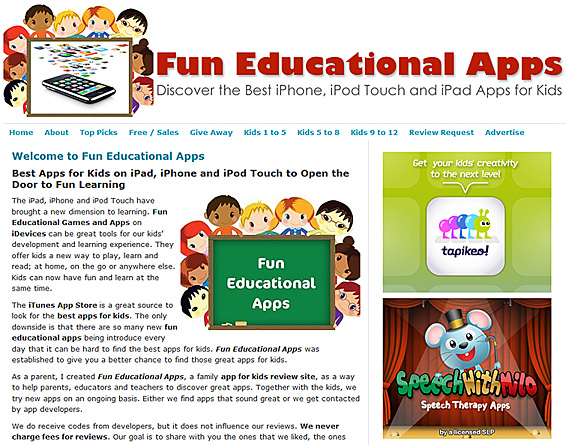Top 10 Sites for Educational Apps — from Technology Tidbits: Thoughts of a Cyber Hero by dkapuler
Research/report:
Mobile Learning Game Improves 5th Graders’ Fractions Knowledge and Attitudes
— Prepared by Prof. Michelle Riconscente | University of Southern California | published by GameDesk Institute
Also see:
Educating the Poor in India: Lessons for America — from EducationNext.org by Peter Meyer
The top 10 K-12 stories of 2011 — from ConvergeMag.com By Tanya Roscorla
10 big (and simple) ideas for 2011 — from Edutopia.org
This year, we’ve seen some great ideas that can be implemented by individual teachers to improve student learning and achievement. Indeed, sometimes the simplest changes can have the biggest impact. Here are ten Edutopia blogs that showcased exciting and doable trends:
![]() Empowering Teachers with Do-It-Yourself Culture
Empowering Teachers with Do-It-Yourself Culture
![]() Making the Case for Open-Source (Read: Free!) Textbooks
Making the Case for Open-Source (Read: Free!) Textbooks
![]() The Video Game Model as a Learning Tool
The Video Game Model as a Learning Tool
![]() An Instructional Model Designed to Close the Achievement Gap in Urban Classrooms
An Instructional Model Designed to Close the Achievement Gap in Urban Classrooms
![]() Three Ways Student Data Can Inform Your Teaching
Three Ways Student Data Can Inform Your Teaching
![]() Using Digital Badges to Reward Self-Directed Learning
Using Digital Badges to Reward Self-Directed Learning
![]() Using a Website to Save Classroom Time
Using a Website to Save Classroom Time
![]() Creating Classroom Rules with a Bill of Student Rights
Creating Classroom Rules with a Bill of Student Rights
![]() A little more complex, but still a great idea: A Model for District-Wide Collaboration
A little more complex, but still a great idea: A Model for District-Wide Collaboration
Via: Online College Hub
5 things to know about the future of Computer Science — from emmaus.patch.com by Peggy Heminitz
- Computer science is key to solving the world’s most crucial problems — environmental sustainability, poverty, hunger and homeland security.
- The U.S. Department of Labor predicts that computing-based jobs will be among the fastest-growing and highest-paying over the next decade.
- By the year 2018, there will be 1.4 million computer specialist jobs available, but only enough college graduates to fill a fraction of them.
- Kindergarten through grade 12 education has fallen behind in preparing students with the fundamental computer science knowledge they need for 21st century careers.
- Computer science needs more people and more diversity.
Common Core State Standards: Resource Roundup — from Edutopia.org
- Resources for Understanding the Common Core State Standards
Explore our educator’s guide to websites, organizations, articles, and other resources for the new system of standards and how they will be assessed. - Getting to Know the Common Core: English Language Arts
This three-part blog series gives educators and parents an overview of basic concepts and implementation. - Assessing the Common Core: Real Life Mathematics
Blogger Andrew Miller on why we need to keep relevancy in mind when we ask students to perform real world math.
Overhauling Computer Science education — from The Journal by D.A. Barber
Students from elementary school through college are learning on laptops and have access to smartphone apps for virtually everything imaginable, but they are not learning the basic computer-related technology that makes all those gadgets work. Some organizations are partnering with universities to change that.
Excerpt:
The ability to use a computer, its software, or computational thinking to solve problems are not core K-12 subjects taught under most state guidelines by certified teachers. In fact, schools often blur the lines between computer technology literacy with the ability to use computational thinking skills across disciplines. Today, computer science (CS) curriculum focuses on teaching how to use software but gives no insight into how it’s made or an aptitude for the technology to an entire generation whose everyday lives have become inextricably linked with computing technology.
While adopting best methods and practices in teaching computer science principles (CSP) is not standard procedure in most K-12 schools, some university projects are working toward that goal. The latest approaches pursue computer science education as far more than learning how to use a computer, building a spreadsheet, or even creating a Web page. It’s about problem solving, computational thinking, and abstract reasoning across a broad range of subjects. According to supporters, you can incorporate these concepts into your curriculum–no matter what subject you teach–and prepare students with the skills for success in the new knowledge economy.
Blowing out the digital book as we know it –– from MindShift by Tina Barseghian
Excerpt (emphasis DSC):
Inkling also produced the epic The Professional Chef by the Culinary Institute of America. The book in its entirety costs $50, but you can also purchase individual chapters for $3 a piece. The new model makes book buying much like buying music — choose only the pieces you like best. MacInnis fluidly demonstrates how to float from one chapter to the next, launch videos, close in on images, tap on sidebars and recipe instructions. It’s like watching a magician performing sleight-of-hand tricks.
From DSC:
Books — and textbooks — will continue to be more cloud-based, interactive, multimedia-based, and will be able to be completely up-to-date as they move more towards becoming like apps (vs. hard copy books/textbooks). I see more experimentation in terms of the implementation of social media tools as well as in trying out different business models. However, when all’s said and done (at least for this next phase), I hope that we can get to the iTunes-like purchasing model mentioned above. I think students, faculty, and staff at educational institutions would benefit greatly from this.
Introducing kids to robotics — from LearningToday.com by Lauren Grossberg














